OSS BLOG

Septic system inspections are a vital aspect of home maintenance that many homeowners often overlook. Regular inspections help identify potential issues early, ensuring that your septic system functions efficiently and avoids costly repairs. In this guide, Oxford Septic Services explores the importance of septic system inspections and provides essential tips for maintaining your system. 1. Why Regular Inspections Are Crucial Regular inspections are crucial for several reasons: Early Detection of Problems: Inspections help identify issues such as leaks, clogs, or tank damage before they escalate into major problems. System Efficiency: Ensuring that all components are functioning correctly helps maintain the overall efficiency of your septic system. Avoiding Costly Repairs: By addressing minor issues during inspections, you can prevent more significant, costly repairs or replacements in the future. 2. What to Expect During a Septic System Inspection A typical septic system inspection involves several key steps: Visual Inspection: The technician will examine the visible components of your septic system, including the tank, drain field, and distribution boxes, for any signs of wear or damage. Sludge and Scum Levels: The technician will measure the levels of sludge and scum in the septic tank. High levels may indicate that it's time for a pump-out. System Functionality: The inspection will assess the overall functionality of your septic system, including checking for proper wastewater flow and drainage. Soil Absorption Testing: If necessary, the technician may perform soil absorption testing to ensure that the drain field is effectively filtering and dispersing effluent. 3. How Often Should You Schedule an Inspection? The frequency of septic system inspections depends on several factors: Age of the System: Older systems may require more frequent inspections. System Size and Usage: Larger systems or those used by larger households may need more frequent evaluations. Local Regulations: Some areas have specific regulations regarding inspection frequency. As a general guideline, it's recommended to have your septic system inspected every 1 to 3 years. However, consult with a professional from Oxford Septic Services to determine the best schedule for your system. 4. Signs That You Need an Inspection Certain signs may indicate that it's time for a septic system inspection: Slow Drains: If you notice that your drains are slow or backing up, it could be a sign of a problem with your septic system. Foul Odors: Unpleasant smells around your septic system or in your yard may indicate a malfunction. Standing Water: Pooling water or soggy areas near the drain field could suggest an issue with the system's drainage. 5. The Inspection Process with Oxford Septic Services Oxford Septic Services offers comprehensive septic system inspections tailored to meet your needs. Our process includes: Thorough Evaluation: Our technicians conduct a detailed examination of your septic system, identifying any potential issues. Expert Recommendations: Based on the inspection results, we provide recommendations for any necessary repairs or maintenance. Prompt Service: We prioritize prompt service to address any issues quickly and minimize disruptions to your home. 6. Preparing for a Septic System Inspection To ensure a smooth inspection process, consider the following steps: Clear the Area: Remove any obstacles around the septic tank and drain field to allow easy access for the technician. Locate Access Points: Ensure that the access points to the septic tank are easily accessible. Inform the Technician: Share any known issues or recent problems with the technician before the inspection begins. 7. Common Myths About Septic System Inspections Several myths about septic system inspections can lead to misunderstandings: Myth: Inspections Are Only for Older Systems: Regular inspections are essential for both new and old systems to ensure ongoing functionality. Myth: You Can Skip Inspections if There Are No Visible Problems: Even if there are no visible issues, regular inspections are necessary to identify hidden problems. Myth: All Inspections Are the Same: Different service providers may offer varying levels of inspection detail. It's important to choose a reputable company like Oxford Septic Services for a thorough evaluation. 8. The Benefits of Choosing Oxford Septic Services Oxford Septic Services is committed to providing high-quality septic system inspections with a focus on customer satisfaction. Our benefits include: Experienced Technicians: Our team has extensive experience and training in septic system inspections and maintenance. Comprehensive Service: We offer detailed inspections and expert recommendations to keep your system in optimal condition. Customer-Centric Approach: We prioritize clear communication and reliable service to meet your needs effectively. 9. FAQ About Septic System Inspections Q: How long does a septic system inspection take? A: The duration of an inspection can vary but typically takes 1 to 2 hours, depending on the system's complexity. Q: How much does a septic system inspection cost? A: The cost of an inspection can vary based on factors such as location and system size. Contact Oxford Septic Services for a detailed quote. Q: What happens if the inspection finds a problem? A: If issues are detected, our technicians will provide a detailed report and recommend necessary repairs or maintenance to address the problem. 10. Maintaining Your System Between Inspections While regular inspections are crucial, it's also important to maintain your septic system between visits: Avoid Flushing Non-Biodegradable Items: Prevent clogs and system damage by avoiding items like wipes, diapers, and feminine products in the toilet. Conserve Water: Implement water-saving practices to reduce strain on your septic system. Be Mindful of Landscaping: Keep trees and shrubs away from the drain field to prevent root intrusion. Conclusion Regular septic system inspections are essential for maintaining the health and efficiency of your system. By understanding the importance of inspections and working with a trusted provider like Oxford Septic Services, you can ensure that your septic system remains in optimal condition and avoid costly repairs.

The Essential Guide to Septic System Maintenance: Tips for Oxford Homeowners Maintaining a septic system is a critical aspect of homeownership that ensures the long-term functionality of your wastewater treatment system. For Oxford homeowners, understanding the fundamentals of septic system maintenance can save you from unexpected repairs, protect your property value, and preserve the environment. This comprehensive guide from Oxford Septic Services provides valuable tips and insights into keeping your septic system in optimal condition. 1. Understanding Your Septic System Before diving into maintenance practices, it’s essential to understand how your septic system works. A typical septic system comprises several key components: Septic Tank: The primary chamber where waste is collected and processed. Solid waste settles at the bottom, forming sludge, while lighter materials like grease float to the top as scum. The liquid waste, or effluent, flows out of the tank and into the drain field. Drain Field: Also known as a leach field, this area consists of perforated pipes buried in trenches filled with gravel or other aggregate. The effluent is distributed through these pipes and filtered by the surrounding soil before it returns to the groundwater. Soil Absorption Area: The soil in the drain field that absorbs and treats the effluent through natural filtration processes. 2. Regular Pumping One of the most critical aspects of septic system maintenance is regular pumping. Over time, solids accumulate in the septic tank, reducing its capacity and efficiency. If not pumped out periodically, these solids can overflow into the drain field, causing clogs and system failures. How Often Should You Pump Your Septic Tank? The frequency of septic tank pumping depends on several factors, including: Household Size: Larger households generate more waste, so tanks may need to be pumped more frequently. Tank Size: Larger tanks can hold more waste and may require less frequent pumping compared to smaller ones. Water Usage: High water usage, such as frequent laundry or dishwashing, can accelerate the accumulation of solids. System Design: Certain designs may necessitate more frequent maintenance. As a general rule, homeowners should plan to have their septic tank pumped every 3 to 5 years. However, it’s best to consult with a professional from Oxford Septic Services to determine the ideal schedule for your specific system. 3. Regular Inspections In addition to pumping, regular inspections are vital for identifying potential issues before they become major problems. During an inspection, a professional will: Check for Leaks: Inspect the tank and pipes for any signs of leaks or damage. Assess System Performance: Evaluate the overall performance of the system, including the function of the drain field and soil absorption area. Measure Sludge Levels: Determine the amount of sludge and scum in the tank to assess whether pumping is needed. Routine inspections help ensure that your septic system operates efficiently and can extend its lifespan by addressing minor issues early. 4. Proper Waste Disposal What you put down your drains and toilets has a significant impact on the health of your septic system. Proper waste disposal practices include: Avoid Flushing Non-Biodegradable Items: Items such as wipes, feminine hygiene products, and paper towels do not break down easily and can cause clogs in the system. Minimize Use of Chemical Drain Cleaners: Harsh chemicals can disrupt the balance of beneficial bacteria in the septic tank, affecting its ability to break down waste. Dispose of Grease Properly: Grease and oil can solidify in the pipes and tank, leading to blockages. Dispose of grease in the trash rather than pouring it down the drain. 5. Water Conservation Conserving water helps reduce the strain on your septic system. Excessive water usage can overload the system, causing it to fail prematurely. Here are some tips for water conservation: Fix Leaks: Repair any leaks in faucets, toilets, and pipes to prevent water wastage. Install Low-Flow Fixtures: Use low-flow toilets, showerheads, and faucets to reduce water consumption. Practice Efficient Laundry and Dishwashing: Run dishwashers and washing machines with full loads and use efficient settings to minimize water usage. 6. Maintaining the Drain Field The drain field is a crucial component of your septic system, and maintaining it is essential for proper wastewater treatment. To protect your drain field: Avoid Parking or Driving on the Drain Field: Heavy vehicles or equipment can compact the soil and damage the drain field pipes. Keep the Area Clear: Ensure that the area above the drain field is free of trees, shrubs, or other vegetation that can interfere with the system. Avoid Excessive Water Runoff: Directing excess water from downspouts or landscaping away from the drain field can prevent over-saturation and system failure. 7. Seasonal Maintenance Different seasons can affect your septic system’s performance. Be proactive with seasonal maintenance by: Winterizing Your System: In cold weather, prevent freezing by keeping the area around the septic tank and drain field insulated and avoiding excessive snow accumulation. Summer Care: During hot weather, be mindful of water usage and avoid overloading the system with heavy rainfall or irrigation. 8. Addressing Common Issues Here are some common septic system issues and how to address them: Slow Drains: Slow or backed-up drains may indicate a problem with the septic system. Consider scheduling an inspection to identify and resolve the issue. Foul Odors: Unpleasant smells around the septic system could be a sign of a problem. Check for leaks or clogs and consult with a professional if the issue persists. Standing Water: Standing water near the drain field could indicate a failure in the system. This may require immediate attention from a septic service provider. 9. Choosing the Right Septic Service Provider When selecting a septic service provider, consider the following factors: Experience and Expertise: Choose a company with experience in septic system maintenance and repairs. Oxford Septic Services has a proven track record of providing high-quality service. Reputation: Look for reviews and recommendations from other homeowners to ensure the provider has a good reputation. Certification and Licensing: Ensure that the company is properly licensed and certified to perform septic system work in your area. 10. The Role of Oxford Septic Services Oxford Septic Services is committed to helping Oxford homeowners maintain their septic systems effectively. With a range of services including inspection, pumping, and repairs, our team ensures that your system operates efficiently and reliably. Contact us today to schedule an appointment or learn more about how we can assist you. Conclusion Maintaining a septic system is essential for ensuring its longevity, protecting your property, and safeguarding the environment. By following these tips and staying proactive with regular maintenance, you can keep your septic system in top shape and avoid costly repairs. For expert assistance and reliable septic services, trust Oxford Septic Services to provide the support you need.

Emergencies can strike at any time, and being prepared is essential for protecting your property and ensuring the safety of your family. While many homeowners focus on preparing for natural disasters like hurricanes or floods, it's also crucial to have a plan in place for septic system emergencies. In this guide, Oxford Septic Services offers valuable insights and practical tips for emergency preparedness to help septic system owners navigate unexpected challenges effectively. Chapter 1: Understanding Septic System Emergencies We'll start by discussing common septic system emergencies, such as backups, leaks, and drain field failures. Understanding the potential risks and consequences of these emergencies will underscore the importance of being prepared. Chapter 2: Developing an Emergency Plan A well-thought-out emergency plan is essential for responding quickly and effectively to septic system emergencies. We'll provide step-by-step guidance for creating an emergency plan tailored to your property, including identifying emergency contacts, assembling emergency supplies, and establishing evacuation procedures if necessary. Chapter 3: Recognizing Signs of Trouble Early detection of septic system issues is crucial for preventing emergencies. We'll discuss common warning signs that indicate potential problems with your septic system, such as foul odors, slow drains, and soggy or lush areas in your yard. Knowing how to recognize these signs will allow you to take prompt action and prevent emergencies from escalating. Chapter 4: Basic Emergency Response Procedures In this chapter, we'll outline basic emergency response procedures for common septic system issues. From simple troubleshooting steps to temporary solutions for mitigating damage, we'll provide practical guidance to help you address emergencies quickly and effectively while awaiting professional assistance. Chapter 5: Contacting Professional Help While some septic system emergencies can be handled independently, others require the expertise of a professional septic service provider. We'll discuss when it's appropriate to contact Oxford Septic Services for emergency assistance and what to expect when our team arrives on-site to assess and address the situation. Chapter 6: Preventative Maintenance Strategies Prevention is always better than cure when it comes to septic system emergencies. We'll share proactive maintenance strategies you can implement to reduce the risk of emergencies, such as routine inspections, regular pumping, and proper waste disposal practices. Chapter 7: Staying Informed and Prepared Finally, we'll emphasize the importance of staying informed and prepared for emergencies year-round. We'll provide resources for accessing up-to-date information on septic system maintenance, as well as tips for staying connected during emergencies, such as having a backup power source and maintaining communication with neighbors. Conclusion: Septic system emergencies can be stressful and disruptive, but with proper preparation and planning, you can minimize their impact on your property and family. By following the insights and tips outlined in this guide, provided by Oxford Septic Services, you can feel confident in your ability to respond effectively to septic system emergencies and protect the health and integrity of your septic system for years to come.
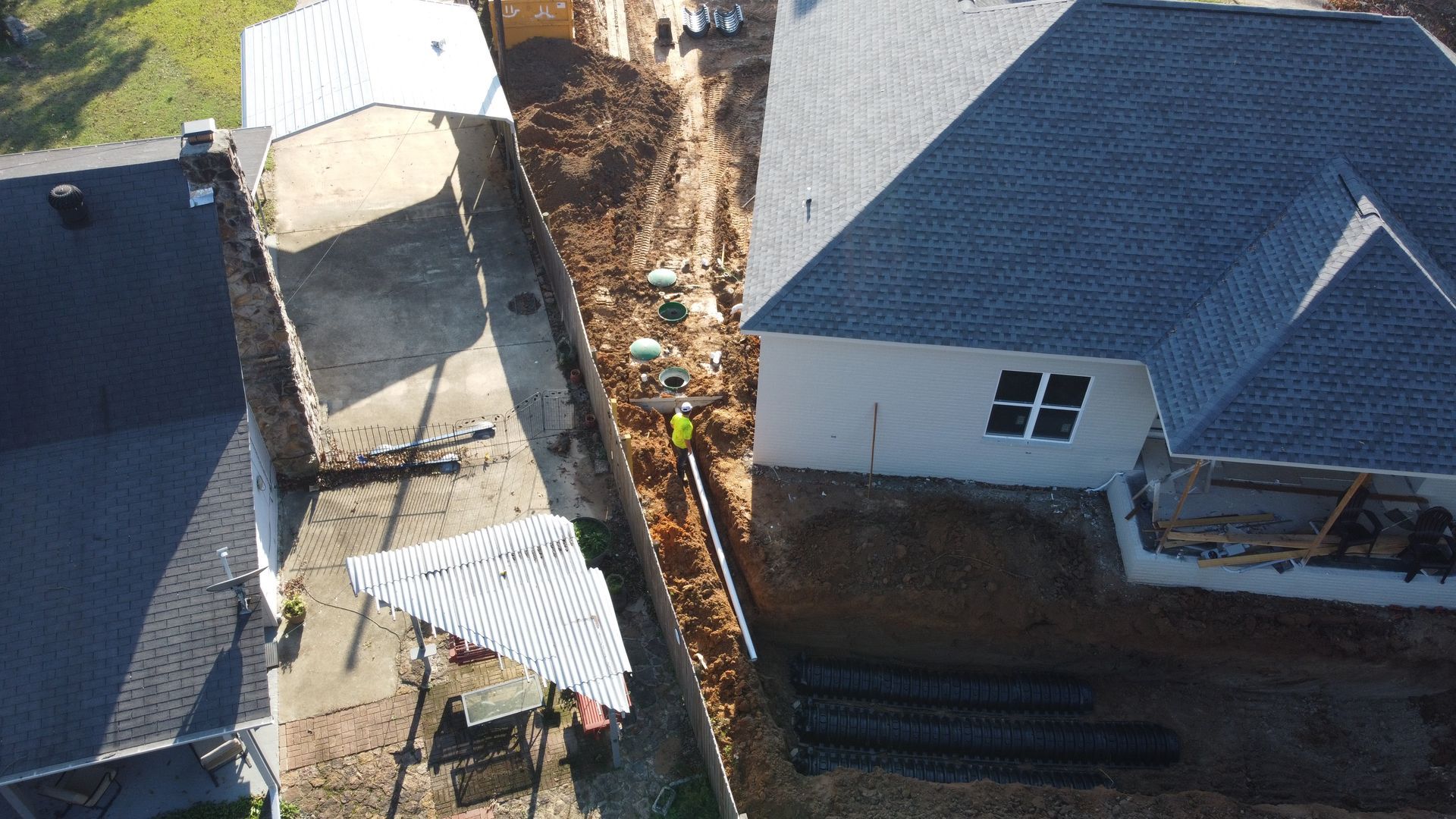
Navigating the regulations surrounding septic systems is crucial for homeowners and businesses to ensure compliance, protect public health, and safeguard the environment. In this guide, Oxford Septic Services provides valuable insights into septic system regulations, offering clarity and guidance for property owners. Chapter 1: Regulatory Overview Oxford Septic Services provides an overview of the regulatory landscape governing septic systems, including local, state, and federal regulations. Understanding the regulatory framework is essential for property owners to comply with legal requirements and avoid potential fines or penalties. Chapter 2: Permitting Requirements Property owners may be required to obtain permits for the installation, repair, or modification of septic systems. Oxford Septic Services explains the permitting process, including the application requirements, approval procedures, and associated fees, to help property owners navigate the process successfully. Chapter 3: Inspection and Maintenance Requirements Many jurisdictions have inspection and maintenance requirements for septic systems to ensure proper functioning and prevent environmental contamination. Oxford Septic Services outlines these requirements, including the frequency of inspections, maintenance tasks, and reporting obligations, to help property owners fulfill their regulatory obligations. Chapter 4: Environmental Considerations Septic systems can impact groundwater quality, surface water contamination, and sensitive ecosystems if not properly maintained. Oxford Septic Services discusses the environmental considerations associated with septic systems, emphasizing the importance of responsible waste management practices to protect the environment and public health. Chapter 5: Compliance Assistance Complying with septic system regulations can be complex, but Oxford Septic Services offers assistance to property owners. Whether it's helping with permit applications, conducting inspections, or providing maintenance services, Oxford Septic Services ensures that property owners have the support they need to meet regulatory requirements. Chapter 6: Future Trends and Developments Regulations governing septic systems are subject to change as new technologies emerge and environmental concerns evolve. Oxford Septic Services discusses future trends and developments in septic system regulations, helping property owners stay informed and adapt to regulatory changes proactively. Conclusion: Understanding septic system regulations is essential for property owners to maintain compliance, protect public health, and preserve the environment. With insights from Oxford Septic Services, property owners can navigate regulatory requirements confidently and ensure the proper functioning of their septic systems for years to come.
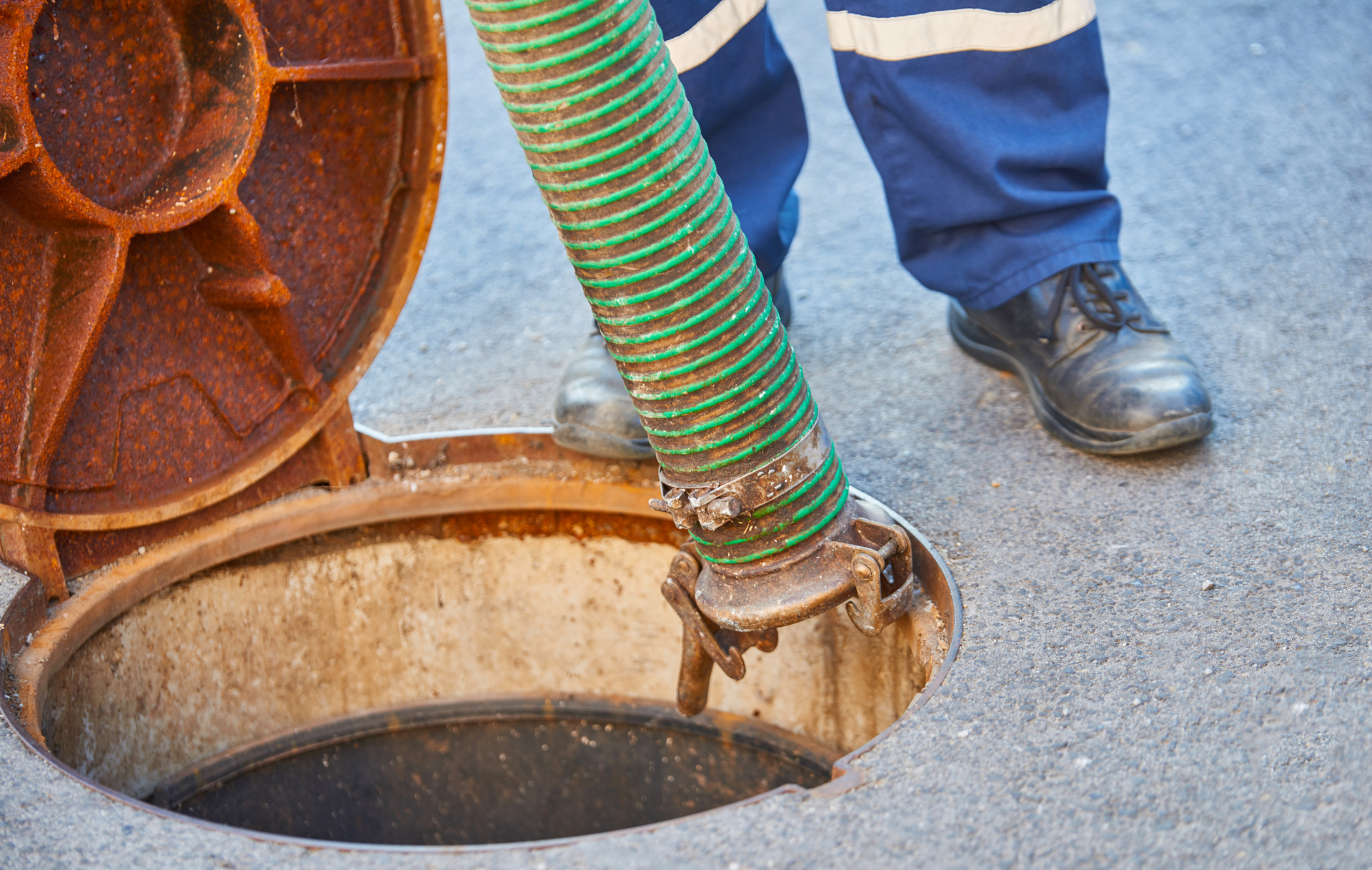
Septic system failures can be costly, inconvenient, and hazardous to both property and health. Fortunately, with proper maintenance and proactive measures, many septic system failures can be prevented. In this guide, Oxford Septic Services shares valuable tips to help homeowners and businesses avoid septic system failures and ensure the long-term functionality of their systems. Chapter 1: Regular Maintenance Inspections Routine maintenance inspections are essential for identifying potential issues early and preventing costly repairs. Oxford Septic Services recommends scheduling regular inspections to assess the condition of your septic system and address any problems before they escalate. Chapter 2: Timely Septic Tank Pumping Regular septic tank pumping is crucial for removing accumulated solids and preventing clogs and backups. Oxford Septic Services advises homeowners to adhere to a consistent pumping schedule based on factors such as household size and usage to maintain optimal tank capacity. Chapter 3: Proper Waste Disposal Practices Improper disposal of household waste can overload septic systems and lead to system failures. Oxford Septic Services recommends avoiding flushing non-biodegradable items, grease, and chemicals down drains and toilets to prevent clogs and damage to the system. Chapter 4: Protecting the Drain Field The drain field plays a critical role in wastewater treatment and dispersal. To prevent drain field failure, Oxford Septic Services advises property owners to avoid parking vehicles or installing structures over the drain field and to maintain proper landscaping to prevent root intrusion. Chapter 5: Prompt Repairs and Maintenance Addressing minor issues promptly can prevent them from escalating into major septic system failures. Oxford Septic Services recommends contacting a professional at the first sign of trouble, such as slow drains, foul odors, or sewage backups, to prevent further damage. Chapter 6: Environmental Awareness Understanding the environmental impact of septic system failures can motivate property owners to prioritize proper maintenance and care. Oxford Septic Services emphasizes the importance of responsible waste management and eco-friendly practices to protect local water sources and ecosystems. Conclusion: By following these tips from Oxford Septic Services, homeowners and businesses can take proactive steps to prevent septic system failures and maintain the functionality of their systems for years to come. With regular maintenance, proper waste disposal practices, and prompt repairs, property owners can avoid costly and disruptive septic system failures and enjoy peace of mind knowing their systems are in good working order.
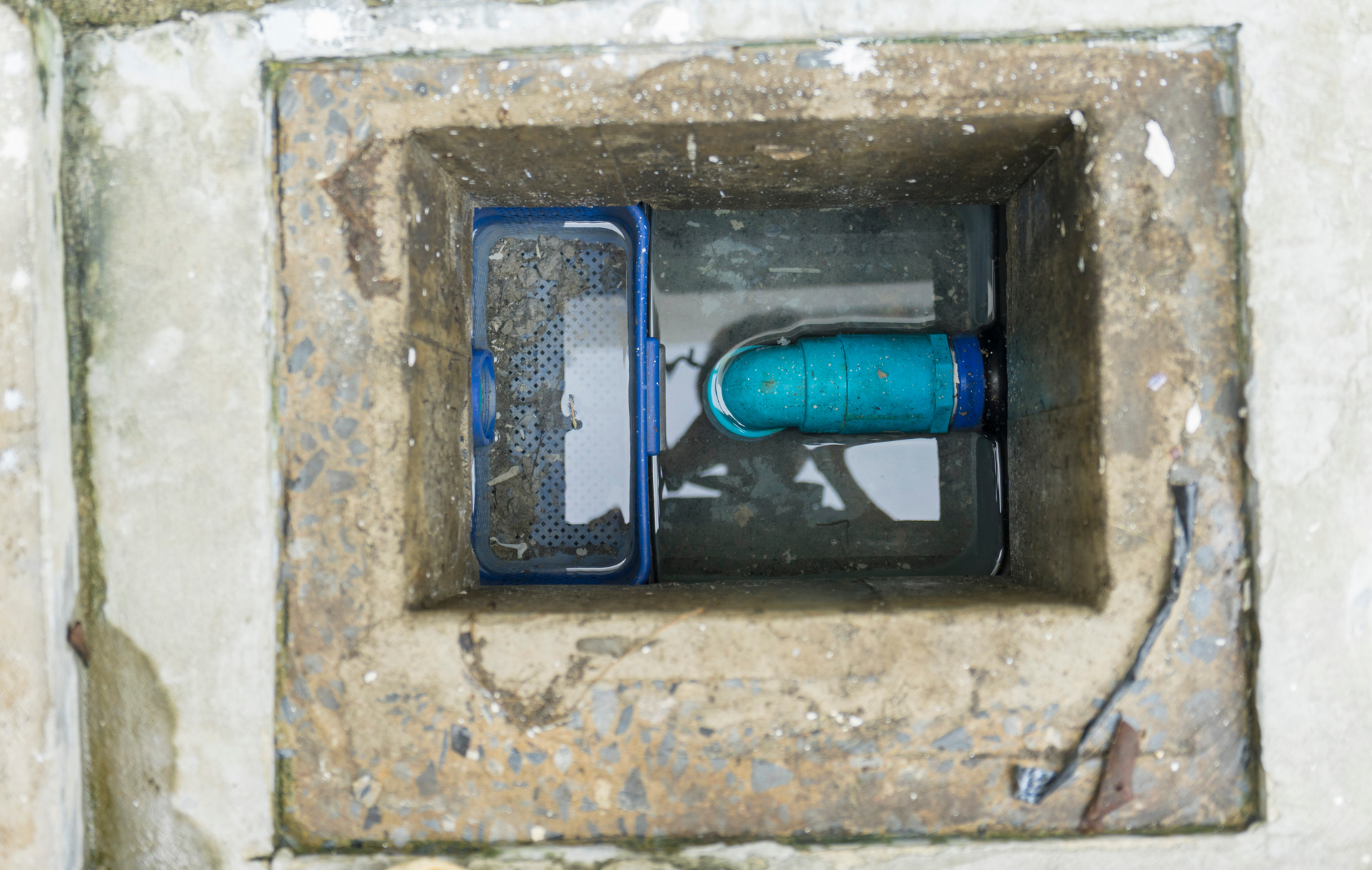
Oxford Septic Services plays a crucial role in ensuring the health and functionality of septic systems in our community. With years of experience and expertise, our team is dedicated to providing top-quality services to homeowners and businesses alike. In this guide, we'll explore the vital role that Oxford Septic Services plays in maintaining healthy septic systems and preserving the well-being of our environment. Chapter 1: Comprehensive Septic System Maintenance Oxford Septic Services offers comprehensive maintenance services designed to keep septic systems running smoothly. From regular inspections to proactive maintenance measures, our team ensures that septic systems remain in optimal condition year-round. Chapter 2: Professional Septic Tank Pumping Regular septic tank pumping is essential for preventing backups and maintaining the proper functioning of septic systems. Oxford Septic Services provides professional pumping services tailored to the unique needs of each property, ensuring efficient removal of waste and sludge. Chapter 3: Prompt Septic System Repairs When issues arise with septic systems, prompt repairs are crucial to prevent further damage and ensure continued functionality. Oxford Septic Services offers timely and reliable repair services, addressing issues such as leaks, clogs, and drain field problems with expertise and efficiency. Chapter 4: Expert Leach Field Services Leach fields are an integral part of septic systems, responsible for filtering and dispersing wastewater into the soil. Oxford Septic Services offers expert leach field services, including inspections, repairs, and installations, to ensure the proper functioning of this critical component. Chapter 5: Emergency Septic Services Septic emergencies can occur at any time, posing significant risks to property and health. Oxford Septic Services offers emergency services around the clock, providing prompt response and effective solutions to mitigate damage and restore functionality. Chapter 6: Residential and Commercial Solutions Whether it's a residential property or a commercial establishment, Oxford Septic Services offers tailored solutions to meet the unique needs of each client. From small homes to large commercial properties, our team has the expertise and resources to handle any septic system challenge. Chapter 7: Environmental Stewardship At Oxford Septic Services, we are committed to environmental stewardship and sustainable practices. We prioritize eco-friendly solutions and responsible waste management techniques to minimize our impact on the environment and protect natural resources. Conclusion: Oxford Septic Services plays a vital role in maintaining healthy septic systems and preserving the well-being of our community. With comprehensive maintenance services, prompt repairs, and a commitment to environmental stewardship, our team ensures that septic systems remain in optimal condition for years to come. Trust Oxford Septic Services for all your septic system needs and experience the difference firsthand.
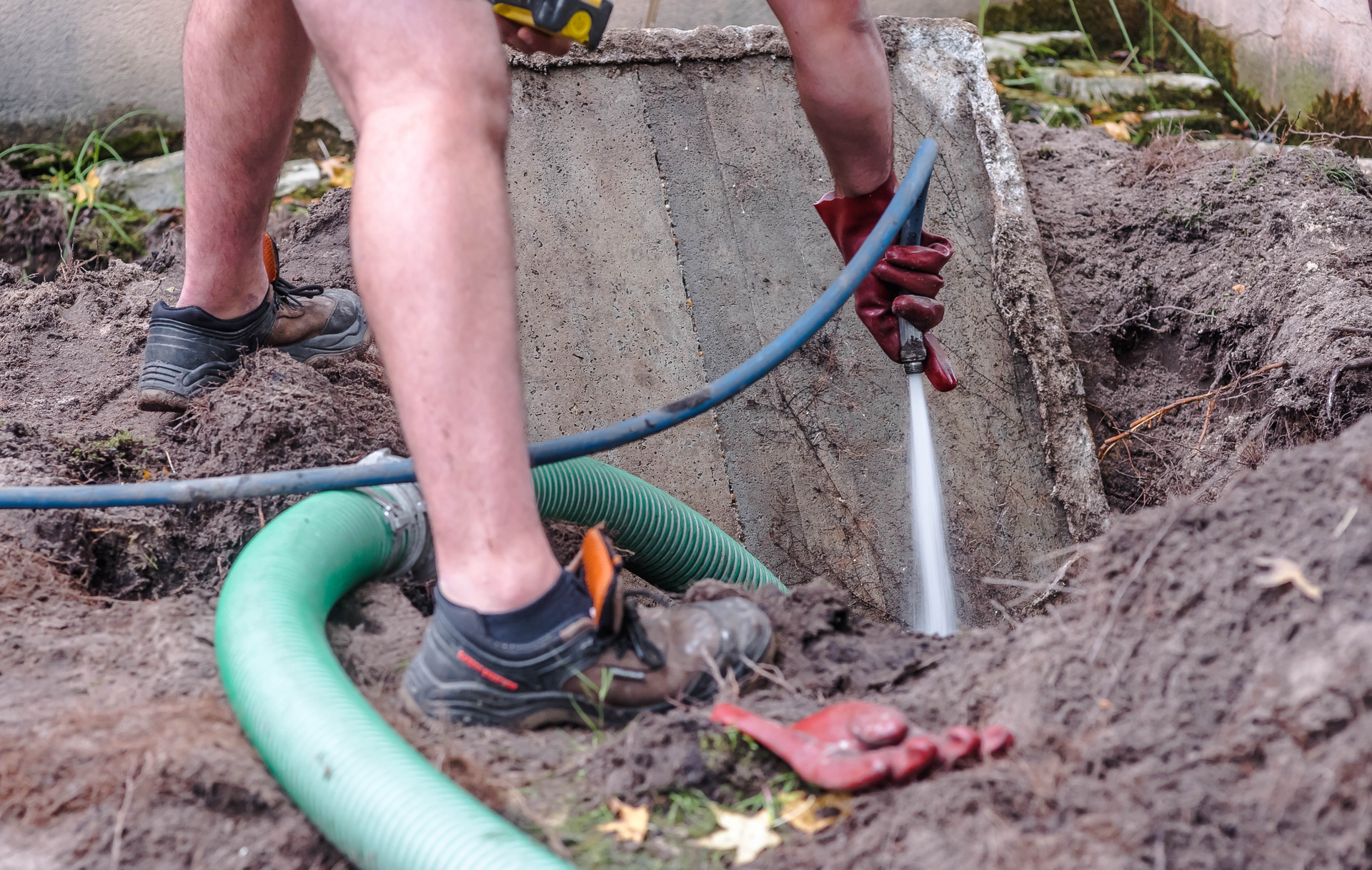
Septic tank pumping is a crucial aspect of septic system maintenance that often goes overlooked by property owners. Regular pumping helps prevent costly repairs, prolongs the lifespan of the septic system, and protects the environment from contamination. In this guide, Oxford Septic Services shares valuable insights into the importance of routine septic tank pumping and its many benefits. Chapter 1: Understanding the Role of Septic Tank Pumping Overview of the septic tank pumping process and its significance in maintaining a healthy septic system Explanation of how septic tank pumping removes accumulated solids and sludge from the tank, preventing clogs and backups Chapter 2: Preventing Costly Repairs and System Failures Discussion of the potential consequences of neglecting septic tank pumping, including system backups, drain field damage, and groundwater contamination Exploration of the financial implications of septic system repairs and replacements compared to the relatively low cost of routine pumping Chapter 3: Extending the Lifespan of Your Septic System Explanation of how regular septic tank pumping helps prolong the lifespan of the septic system by reducing stress on system components and preventing premature failure Discussion of the correlation between routine pumping and the overall health and longevity of the septic system Chapter 4: Protecting the Environment and Public Health Examination of the environmental and public health risks associated with untreated wastewater discharge from poorly maintained septic systems Explanation of how routine septic tank pumping helps mitigate these risks by preventing groundwater contamination and protecting local water sources Chapter 5: Maintaining Property Value and Resale Potential Exploration of the impact of a well-maintained septic system on property value and resale potential Discussion of how routine septic tank pumping demonstrates responsible property ownership and can increase buyer confidence during real estate transactions Chapter 6: Ensuring Regulatory Compliance Overview of local regulations and requirements regarding septic system maintenance and pumping frequency Explanation of how routine septic tank pumping helps property owners remain in compliance with regulatory standards and avoid potential fines or penalties Chapter 7: Best Practices for Scheduling Septic Tank Pumping Recommendations for establishing a regular pumping schedule based on factors such as household size, water usage, and septic system capacity Tips for working with professional septic service providers like Oxford Septic Services to schedule timely and efficient pumping services Conclusion: Routine septic tank pumping is an essential aspect of responsible septic system ownership, offering numerous benefits for property owners, the environment, and public health. By understanding the importance of routine pumping and working with trusted professionals like Oxford Septic Services, property owners can ensure the long-term performance and reliability of their septic systems.
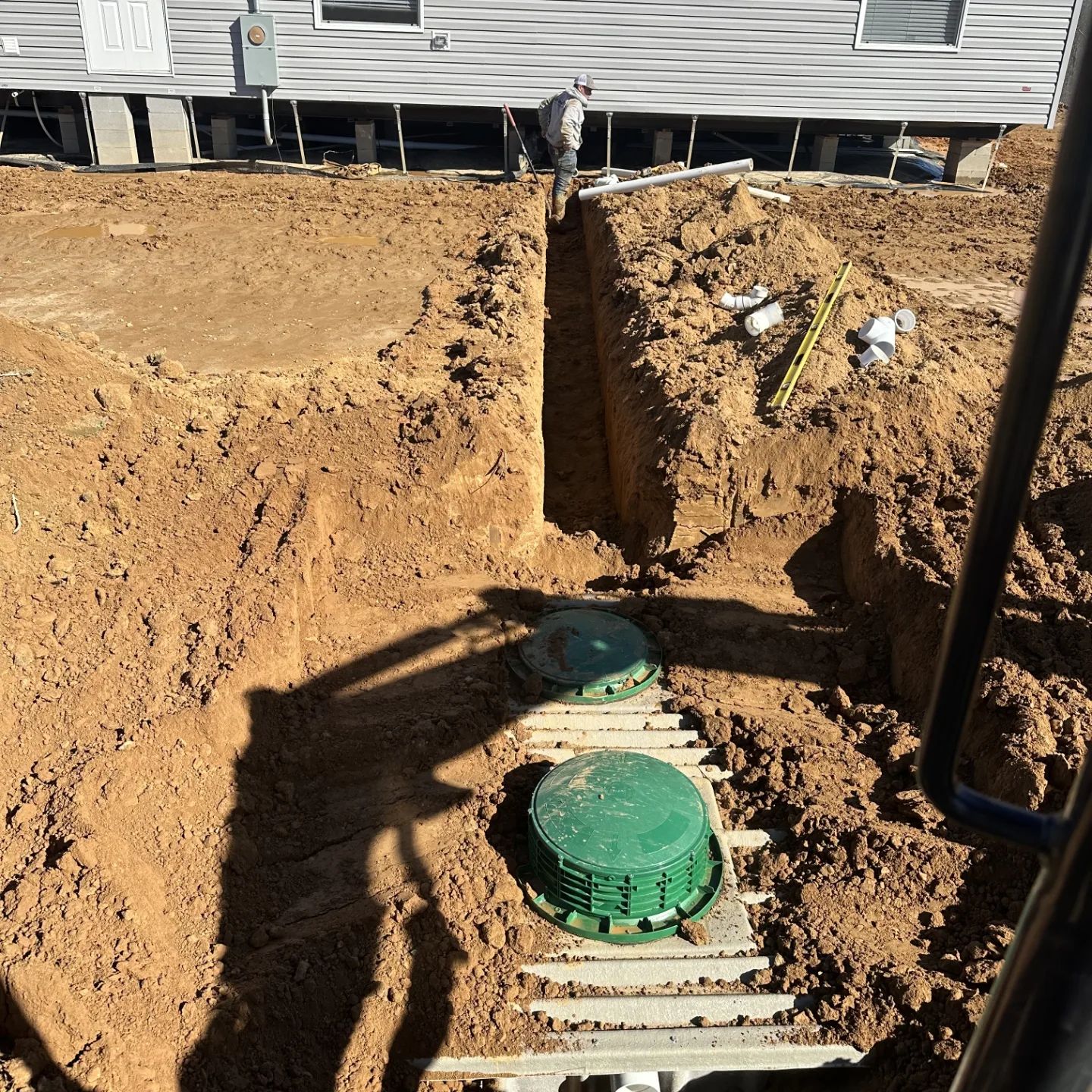
Installing a septic system is a critical step in ensuring proper wastewater management for residential and commercial properties. However, the installation process can be complex and requires careful planning and execution. In this comprehensive guide, Oxford Septic Services provides essential information and expert tips for homeowners and property owners considering septic system installation. Chapter 1: Understanding the Basics of Septic Systems Overview of septic systems and their components, including the septic tank, drain field, and distribution box Explanation of how septic systems function to treat and dispose of wastewater on-site, without access to a municipal sewer system Chapter 2: Assessing Site Conditions and Permitting Requirements Guidance on assessing soil conditions, topography, and site suitability for septic system installation Explanation of the permitting process and regulatory requirements for septic system installation, including obtaining necessary permits and approvals from local authorities Chapter 3: Designing the Septic System Overview of the steps involved in designing a septic system, including determining system size, layout, and location Discussion of factors to consider when designing a septic system, such as property size, soil type, and groundwater levels Chapter 4: Selecting and Installing Septic System Components Explanation of the different types of septic tanks, drain fields, distribution boxes, and other system components available for installation Step-by-step instructions for properly installing septic system components, including excavation, tank placement, piping installation, and backfilling Chapter 5: Ensuring Proper System Ventilation and Plumbing Connections Importance of providing adequate ventilation for the septic system to prevent the buildup of harmful gases, such as methane and hydrogen sulfide Guidelines for properly connecting plumbing fixtures, such as toilets, sinks, and showers, to the septic system to ensure efficient wastewater flow Chapter 6: Conducting Final Inspections and Testing Overview of the final inspection and testing process to ensure that the septic system meets all regulatory requirements and functions properly Explanation of common tests conducted during the final inspection, such as hydraulic load testing, dye testing, and soil percolation testing Chapter 7: Maintaining and Caring for Your New Septic System Recommendations for ongoing maintenance and care of the newly installed septic system, including routine pumping, inspection, and monitoring Tips for avoiding common pitfalls and ensuring the long-term reliability and performance of the septic system Conclusion: By following the guidelines and expert tips provided in this guide, property owners can navigate the septic system installation process with confidence. With careful planning, proper design, and professional installation by Oxford Septic Services, property owners can ensure the reliable operation and longevity of their septic systems for years to come.

Residential septic systems are essential for managing household wastewater in areas without access to municipal sewer systems. However, like any other system, they can encounter issues that require troubleshooting and repair. In this guide, Oxford Septic Services provides valuable tips for homeowners to troubleshoot common residential septic system problems and prevent costly repairs. Chapter 1: Understanding Common Septic System Problems Overview of common issues that can affect residential septic systems, including clogs, backups, odors, and drain field problems Explanation of the causes and warning signs of each problem to help homeowners identify issues early Chapter 2: Conducting Basic Inspections and Maintenance Guidance on conducting visual inspections of the septic tank, drain field, and plumbing fixtures to check for signs of problems, such as standing water, sewage odors, or slow drains Tips for performing basic maintenance tasks, such as regular pumping, cleaning, and maintaining proper waste disposal practices Chapter 3: Troubleshooting Drainage Issues Explanation of common drainage problems, such as slow drains, gurgling noises, and sewage backups, and their potential causes, such as clogs, blockages, or septic tank overflows Step-by-step instructions for troubleshooting drainage issues, including checking for clogs in plumbing fixtures, inspecting the septic tank and drain field, and testing for leaks Chapter 4: Addressing Odor Problems Discussion of the causes of septic system odors, such as sludge buildup, leaks, or ventilation problems, and their potential health risks Recommendations for troubleshooting and addressing odor problems, including inspecting the vent pipe, checking for leaks, and performing routine maintenance tasks Chapter 5: Resolving Drain Field Issues Overview of common drain field problems, such as flooding, standing water, or soggy soil, and their underlying causes, such as hydraulic overloading, root intrusion, or soil compaction Guidance on troubleshooting drain field issues, including inspecting the soil absorption rate, checking for root intrusion, and addressing hydraulic overloading Chapter 6: Knowing When to Call a Professional Explanation of when homeowners should attempt to troubleshoot septic system problems themselves and when they should seek assistance from a professional septic service provider, like Oxford Septic Services Recommendations for choosing a qualified and reputable septic service provider to ensure prompt and effective resolution of septic system issues Conclusion: By understanding common septic system problems and following the troubleshooting tips provided in this guide, homeowners can effectively address issues and prevent costly repairs. However, in cases where problems persist or require specialized equipment or expertise, it's essential to seek assistance from a professional septic service provider like Oxford Septic Services. With proper maintenance and timely repairs, homeowners can ensure the reliable operation of their residential septic systems for years to come.
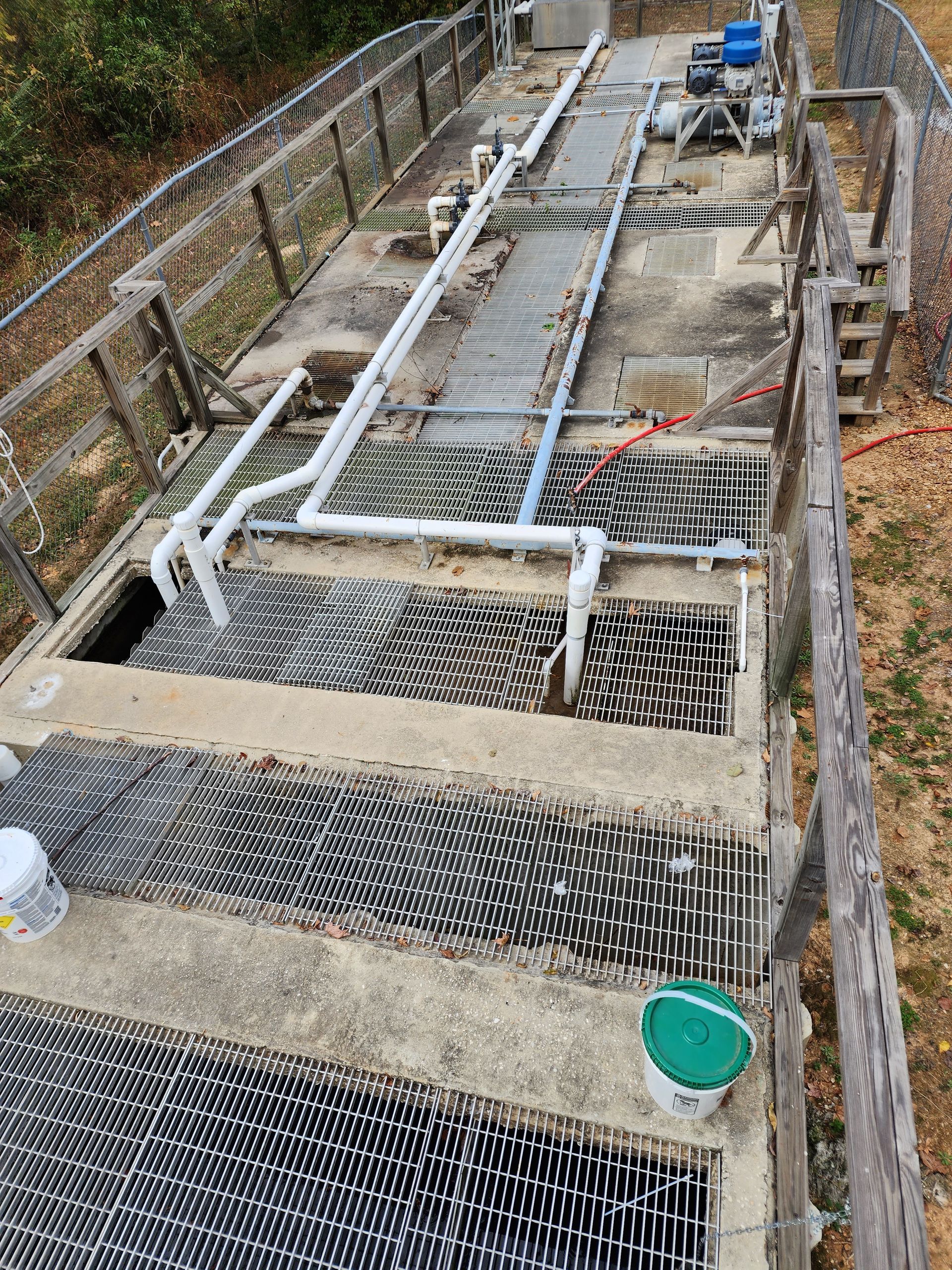
Commercial properties rely on septic systems to manage wastewater efficiently and comply with environmental regulations. Proper maintenance is crucial to prevent system failures, protect public health, and ensure uninterrupted business operations. In this guide, Oxford Septic Services shares valuable tips to help business owners maintain their commercial septic systems effectively. Chapter 1: Understanding Commercial Septic Systems Overview of the components and functioning of commercial septic systems, including tanks, pipes, and drain fields Explanation of the differences between residential and commercial septic systems, such as larger capacity requirements and higher wastewater volumes Chapter 2: Implementing Regular Maintenance Practices Importance of scheduling routine maintenance tasks, such as septic tank pumping, inspections, and grease trap cleaning, to prevent system failures and maintain compliance with regulations Tips for creating a maintenance schedule and partnering with qualified professionals, like Oxford Septic Services, to ensure timely service Chapter 3: Monitoring System Performance Discussion of the importance of monitoring system performance indicators, such as wastewater flow rates, effluent quality, and odors, to detect issues early and prevent costly repairs Recommendations for installing monitoring devices, such as flow meters and alarm systems, to provide real-time feedback on system health Chapter 4: Implementing Best Practices for Waste Management Explanation of best practices for managing wastewater generated by commercial operations, including proper disposal of grease, chemicals, and other contaminants Importance of educating employees about the impact of their actions on the septic system and providing training on proper waste management procedures Chapter 5: Maintaining Compliance with Regulatory Requirements Overview of regulatory requirements for commercial septic systems, including permitting, reporting, and record-keeping obligations Tips for staying informed about local regulations and working with regulatory agencies to ensure compliance Chapter 6: Planning for Emergency Situations Importance of developing an emergency response plan to address system failures, leaks, and other unforeseen events promptly Recommendations for establishing relationships with emergency service providers, like Oxford Septic Services, to ensure rapid response and minimize downtime Conclusion: Proper maintenance is essential for ensuring the reliable operation of commercial septic systems and protecting public health and the environment. By implementing regular maintenance practices, monitoring system performance, and staying informed about regulatory requirements, business owners can minimize the risk of system failures and ensure compliance with environmental regulations. With the support of experienced professionals like Oxford Septic Services, commercial property owners can maintain efficient and reliable septic systems for years to come.
